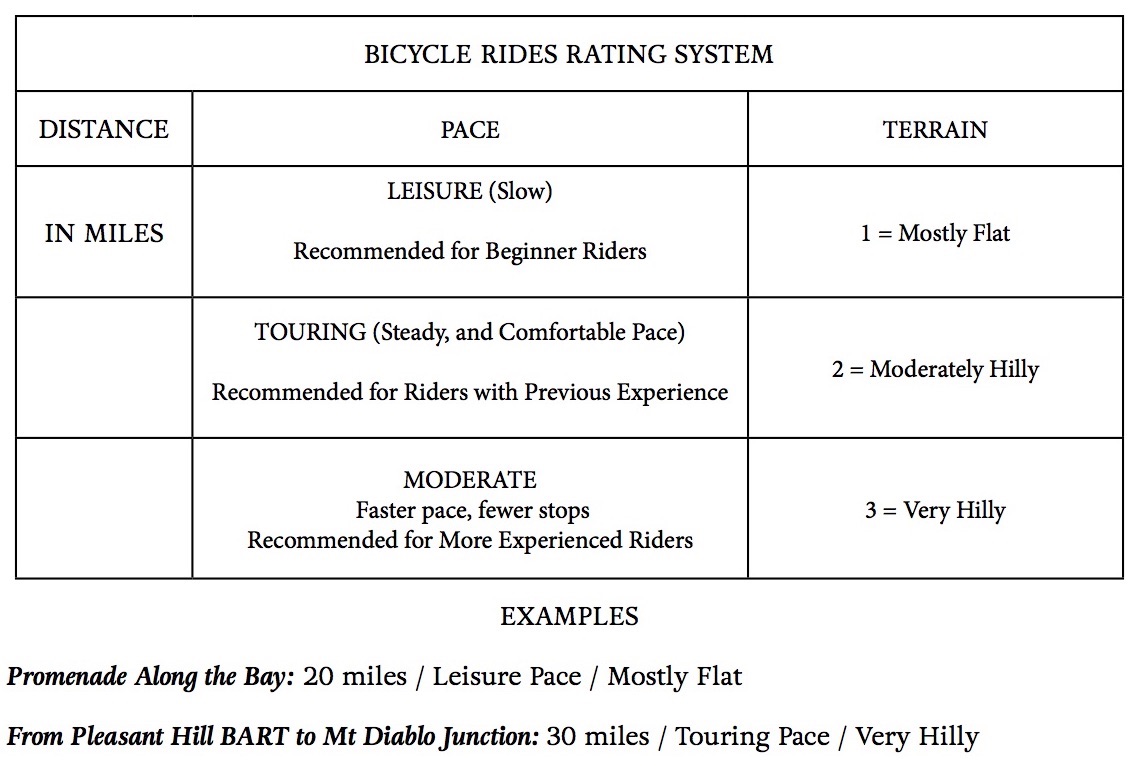Sierra Club activities are conducted with a minimum of rules and regimentation. However, safe and successful trips involve some basic requirements:
-
Informed Participation. All outings participants must sign a Liability Waiver (also available in Spanish, Korean, Vietnamese, Mandarin, and Haitian Creole) prior to participation on any Sierra Club outing. In case of doubt regarding directions, required equipment, or whether you are qualified for the type of outing you are considering, contact the trip leader.
-
Preparation. Sierra Club outings are intended to promote enjoyment of nature, not to import civilization or alter nature. Be on time at the meeting place, adequately prepared so as not to hold up the group. No guns or radios are allowed on trips. Hikes are held rain or shine unless otherwise stated.
-
Animals. Pets are permitted only on outings that are pre-advertised as pet-permitted outings, such as a canine hike. Service animals, as defined by the Americans with Disabilities Act, are not considered pets and are not subject to this rule. However, if you have a service animal, contact the leader in advance to ensure reasonable accommodations can be made.
-
Respect the Leaders and their Assistants. The leader and any assistants are in charge and responsible for determining qualifications to participate, adequacy of equipment, routes to be followed, and special precautions to be observed. The leader is authorized to dismiss from the group anyone whose behavior is disruptive. All participants must stay with the group unless other arrangements are approved by the leader or a designated assistant. Participants may leave the group only with the knowledge and of the leader and are then no longer considered as participants of the group.
-
Fire Safety. Build fires only in established fireplaces or where designated by leaders. Extinguish fires thoroughly before leaving camp. Except in established camps, fire sites must be completely dismantled and all evidence of camping must be eliminated.
-
Respect for the Natural Environment. The guiding standard is: ''Take only pictures; leave only footprints." Do not pick wild flowers or damage plants. Do not cut across trail switchbacks; short-cutting promotes erosion and damages the trail. Soap and detergent must be kept away from lakes and streams.
-
Leave No Litter! Carry out all your non-burnable garbage and trash (do not burn foil-lined packages). Dispose of trash only at garbage cans and take your recyclables to official collection points.
-
Personal Comfort and Safety. Safe, pleasant, and enjoyable trips are best assured through using proper equipment and observing the leader's instructions. No one has any right to impair a trip by conduct that endangers yourself or others. While hiking, stay with your group or subgroup.
-
What to Bring? For day hikes always bring lunch and enough water. Consider layered clothing, sunscreen, hiking poles, and shoes with treads. Non-service dogs are allowed only if specified in the listing; canine hikers should bring leashes, litter bags, and water for their dogs. For questions about a specific outing, contact the hike leader.
-
Start Time. If the meeting time includes the word "sharp", expect that the leaders will be at the trail head no more than five minutes after the stated time. Otherwise, expect that the group will depart the trail head approximately fifteen minutes after the stated meeting time. Please make every effort to be prompt so as to not delay the group's departure.
-
Carpooling. Please help reduce your carbon footprint by carpooling. Be aware that drivers drive and riders ride at their own respective risks.The carpool is NOT part of the Outing. Riders are expected to be mindful of the prevailing price per gallon of fuel and to share the cost of gas for the trip, toll, parking, and entrance fees. Many activities are listed on the Chapter’s Meetup site a couple weeks in advance of the event. Join the Bay Chapter Meetup group and post a comment requesting or offering a ride.
Hike and Walk Ratings
Hike and walk ratings consist of a number-letter code where the number is the distance and the letter is the amount of uphill climbing.
Miles
1: Up to 6
2: 6 - 10
3: 10 - 15
4: 15 - 20
5: over 20
Elevation Gain (feet)
A: Up to 1000
B: 1000 to 2000
C: 2000 to 3000
D: Over 3000
So a hike rated 2B means that the distance covered will be from 6 to 10 miles and the total elevation gain will be between 1000 and 2000 ft. A mini-hike is 4 miles or less and has an elevation gain of 500 ft or less.
Backpack Ratings
Backpack ratings consist of a number-letter code indicating length, elevation gain, and difficulty.
Miles (per day)
1: up to 6
2: 6 - 10
3: 10 - 15
Elevation Gain (feet, per day)
A: Up to 1,000
B: 1,000 - 2000
C: 2,000 - 3,000
D: over 3,000 T -Trail
Travel
1 - Limited/easy X-C
2 - Moderate X-C
3 - Strenuous/difficult X-C
So a trip rated 1B3 means that the most strenuous day will be as much as 6 miles of hiking, 2000 feet of climb, and over strenuous to difficult cross-country terrain.
Bicycling Ratings
